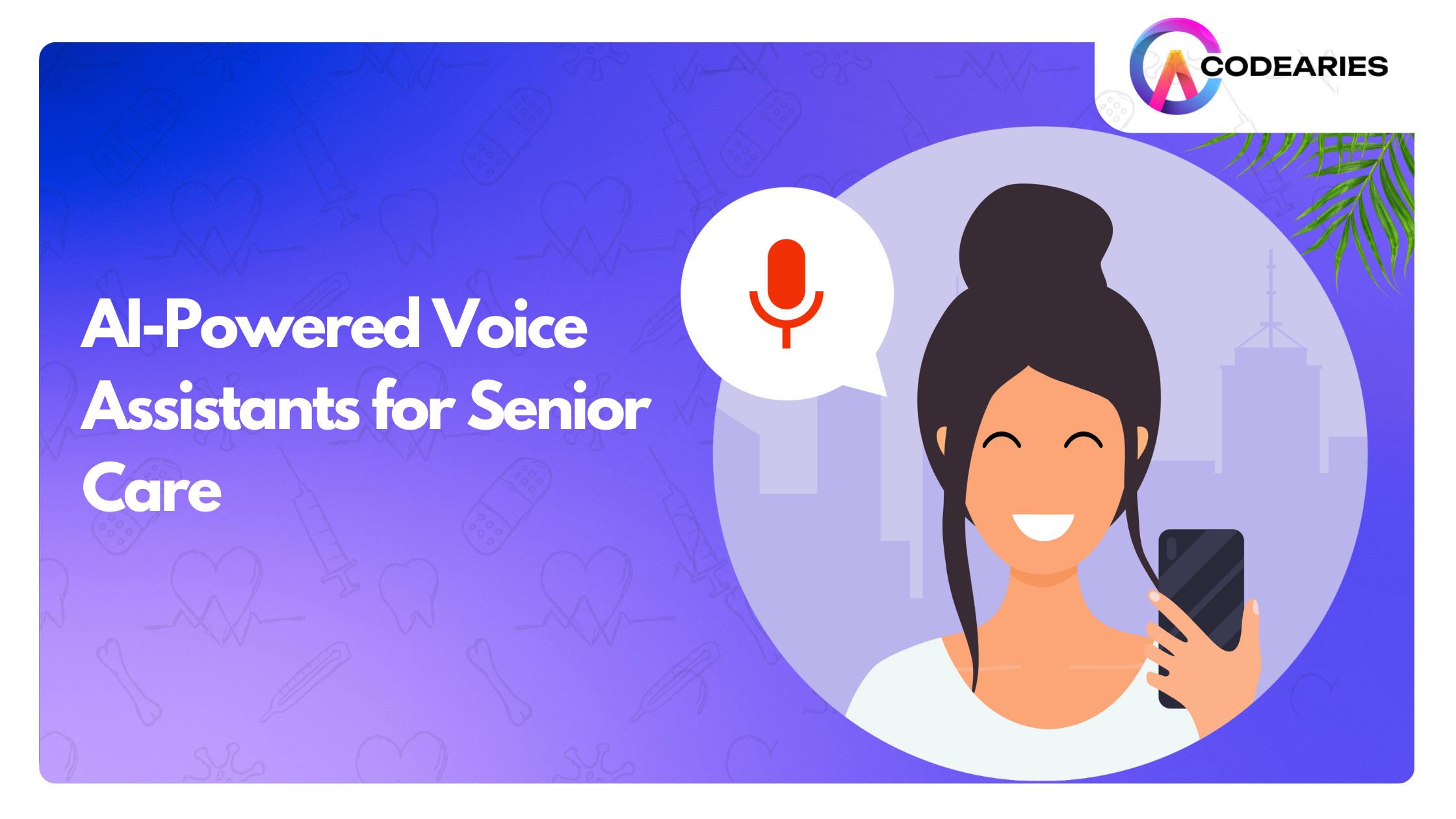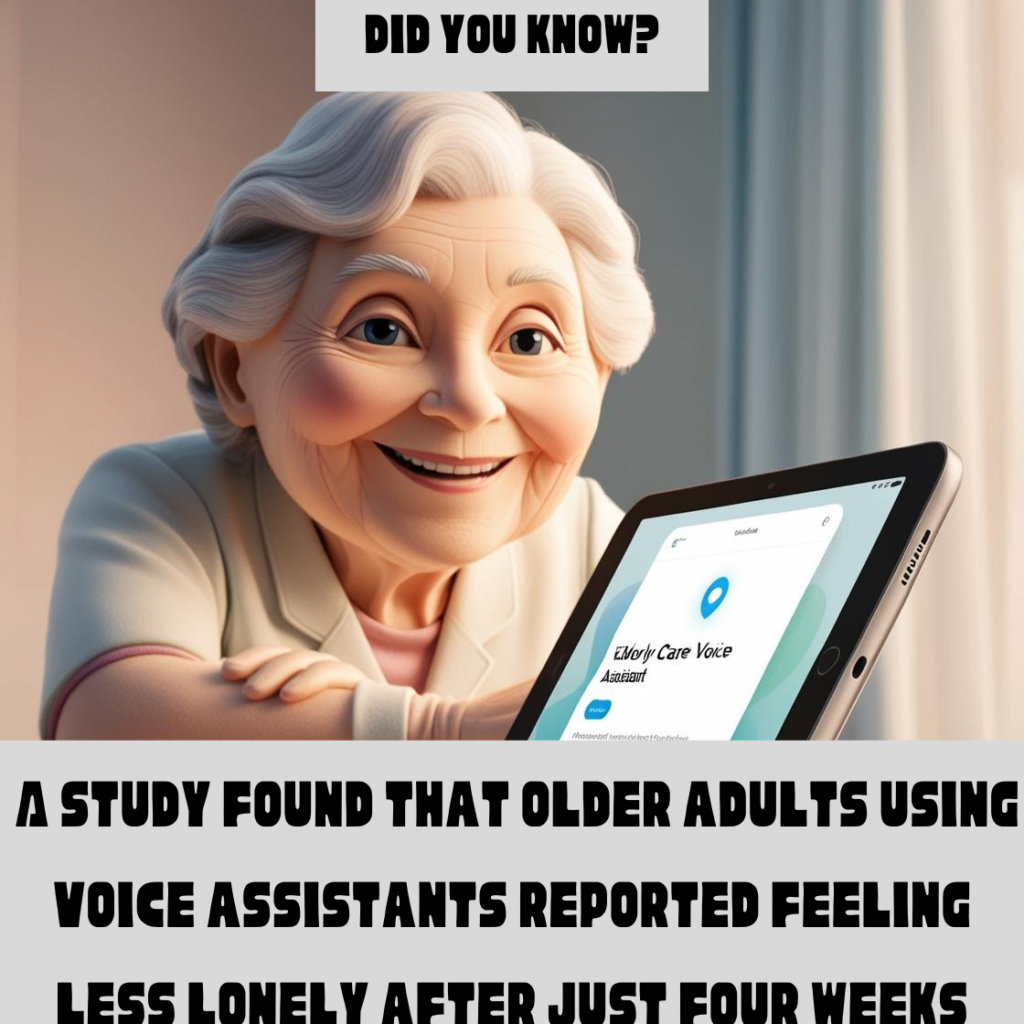
In an era of rapidly advancing technology, seniors no longer need to rely solely on human caregivers or family members for their daily needs. AI-powered voice assistants have become invaluable allies in senior care, offering support with everything from medication reminders to emergency assistance. This cutting-edge technology is empowering older adults to live independently while staying connected, safe, and engaged. Let’s dive into how these digital companions are transforming senior living for the better.
Why AI Voice Assistants Are the Future of Senior Care
Imagine having a personal assistant who never sleeps, never forgets, and is always ready to help. That’s the essence of AI-powered voice assistants like Amazon Alexa, Google Assistant, and specialized devices like LifePod.
For seniors, who may face mobility issues, memory challenges, or the need for constant reassurance, these devices provide a lifeline—one that responds instantly to a voice command or even a gentle query like, “What’s the weather today?”
The Growing Need for Tech-Savvy Senior Care

- Global aging population trends show a significant rise in the number of seniors needing assistance.
- Families and caregivers often feel stretched thin, making AI a welcome supplement to human care.
- Voice assistants offer seniors a sense of autonomy that is often lost in traditional caregiving setups.
What Exactly Are AI-Powered Voice Assistants?
In simple terms, AI voice assistants are devices that listen, understand, and respond to voice commands. But their abilities go far beyond that. Using advanced Natural Language Processing (NLP) and machine learning, these assistants can adapt to users’ preferences and routines. They are not just gadgets; they’re companions that grow smarter with every interaction.
Top Examples:
- Amazon Alexa: Popular for its versatility and “Skills” ecosystem.
- Google Assistant: Known for its natural language understanding and contextual accuracy.
- LifePod: A dedicated senior-care assistant that proactively checks in on users.
How AI Voice Assistants Address Senior Challenges
Aging can bring unique hurdles—both physical and emotional. Here’s how AI voice assistants come to the rescue:
- Memory Support: Forgetting medications or appointments becomes a thing of the past with reminders tailored to daily routines.
- Physical Assistance: From turning off lights to locking doors, seniors can manage their homes without lifting a finger.
- Social Connection: Loneliness is a common problem for seniors. Voice assistants facilitate calls, messages, and even entertainment like audiobooks or music.
- Emergency Help: In moments of crisis, a simple command like “Help me!” can summon assistance immediately.
Real-Life Scenario:
Mrs. Peterson, an 82-year-old widow, uses her Google Nest to check her schedule, listen to nostalgic songs, and contact her daughter when she feels lonely. She says, “It’s like having a friend who’s always there for me.”
Key Features Tailored for Senior Care
Voice assistants are loaded with features that directly address senior needs:
Medication Management
- Voice reminders to take pills or schedule refills.
- Notifications for caregivers if a dose is missed.
Hands-Free Communication
- Make calls or send texts just by speaking.
- Interact with family through video calls on compatible devices.
Home Automation
- Adjust the thermostat, turn off lights, or lock doors—all through voice commands.
- Enable routines, such as “Goodnight,” to automate multiple tasks at once.
Entertainment & Engagement
- Play calming music, stream favorite radio shows, or ask trivia questions for fun.
- Access podcasts or audiobooks for mental stimulation.
Emergency Response
- Devices like LifePod and Alexa’s Care Hub provide immediate emergency alerts or notifications to family members.
Breaking Down the Benefits
AI-powered voice assistants have reshaped what independence looks like for seniors. Here’s why they’ve become indispensable:
- Safety First:
Seniors can summon help without reaching for a phone, crucial during falls or medical emergencies. - Enhanced Independence:
By automating repetitive tasks, seniors reclaim their freedom without feeling burdensome. - Stronger Family Connections:
Quick access to video calls and messaging bridges the gap between generations. - Mental Well-being:
Engaging features, such as games or storytelling, help seniors stay mentally active and stave off loneliness.
Popular Voice Assistants and How They Compare
Amazon Alexa
- Ideal for seniors who want versatility.
- Skills include medication tracking and integration with smart devices.
Google Assistant
- Great for natural, conversational commands.
- Offers seamless integration with Google services.
LifePod
- Designed specifically for seniors.
- Proactively engages users with reminders and wellness check-ins.
Challenges and Considerations
Despite their many benefits, AI voice assistants are not without challenges:
- Learning Curve:
Seniors unfamiliar with technology may need help during setup and initial use. - Privacy Concerns:
Devices collect data, raising questions about security and ethical use. - Cost Barriers:
While basic models are affordable, advanced features may require subscriptions.
Pro Tip:
Make the transition easier by setting up the device for the senior and providing simple, step-by-step instructions.
Future Trends in AI for Senior Care
As AI continues to evolve, voice assistants are becoming even more intuitive and powerful. Future advancements may include:
- Predictive Health Alerts: Early warnings for potential health issues based on voice patterns or behavioral changes.
- Wearable Integration: Syncing with devices like smartwatches to track vitals and activity.
- Proactive Assistance: AI systems will anticipate needs, like suggesting a water break or a walk, based on the user’s habits.
How to Set Up an AI Voice Assistant for Seniors
Follow these easy steps to get started:
- Choose the Right Device: Look for one with senior-specific features like ease of use and emergency alerts.
- Set Up a Wi-Fi Connection: Ensure the device is always connected for seamless functioning.
- Customize Settings: Adjust volume, enable accessibility features, and add personalized reminders.
- Train the Senior User: Teach them key phrases like “Call [Name]” or “Set a reminder for [Task].”
Ethics in Senior Care Technology
The growing reliance on AI for eldercare brings ethical considerations into focus. Developers must ensure:
- Data Privacy: Protecting sensitive user data from breaches.
- Accessibility: Making devices affordable and easy for all seniors.
- Human Touch: Balancing AI support with human interaction to avoid feelings of isolation.
Conclusion
AI-powered voice assistants are much more than just technological tools—they’re companions, safety nets, and gateways to independence for seniors. Whether it’s helping with daily routines, providing entertainment, or ensuring emergency assistance, these devices are reshaping the way we think about aging. For families and caregivers, embracing this innovation means offering loved ones a better quality of life, wrapped in the promise of security and care.
FAQs on AI-Powered Voice Assistants for Senior Care
How is AI used in elderly care?
AI enhances elderly care through health monitoring, fall detection, medication reminders, cognitive support, and social companionship. It improves safety, manages health conditions, and reduces loneliness.
What is an AI-powered voice assistant?
An AI-powered voice assistant uses natural language processing to perform tasks via voice commands. In elderly care, it helps with reminders, health tracking, home automation, and companionship.
How is AI currently being used in aged care?
AI is used in aged care for personalized care plans, remote monitoring, caregiver communication, and cognitive engagement through interactive tools and games.
What is an AI-based interactive robot for elderly care?
AI-based interactive robots assist elderly individuals by providing companionship, task reminders, emergency alerts, and cognitive activities, enhancing independence and mental well-being.


